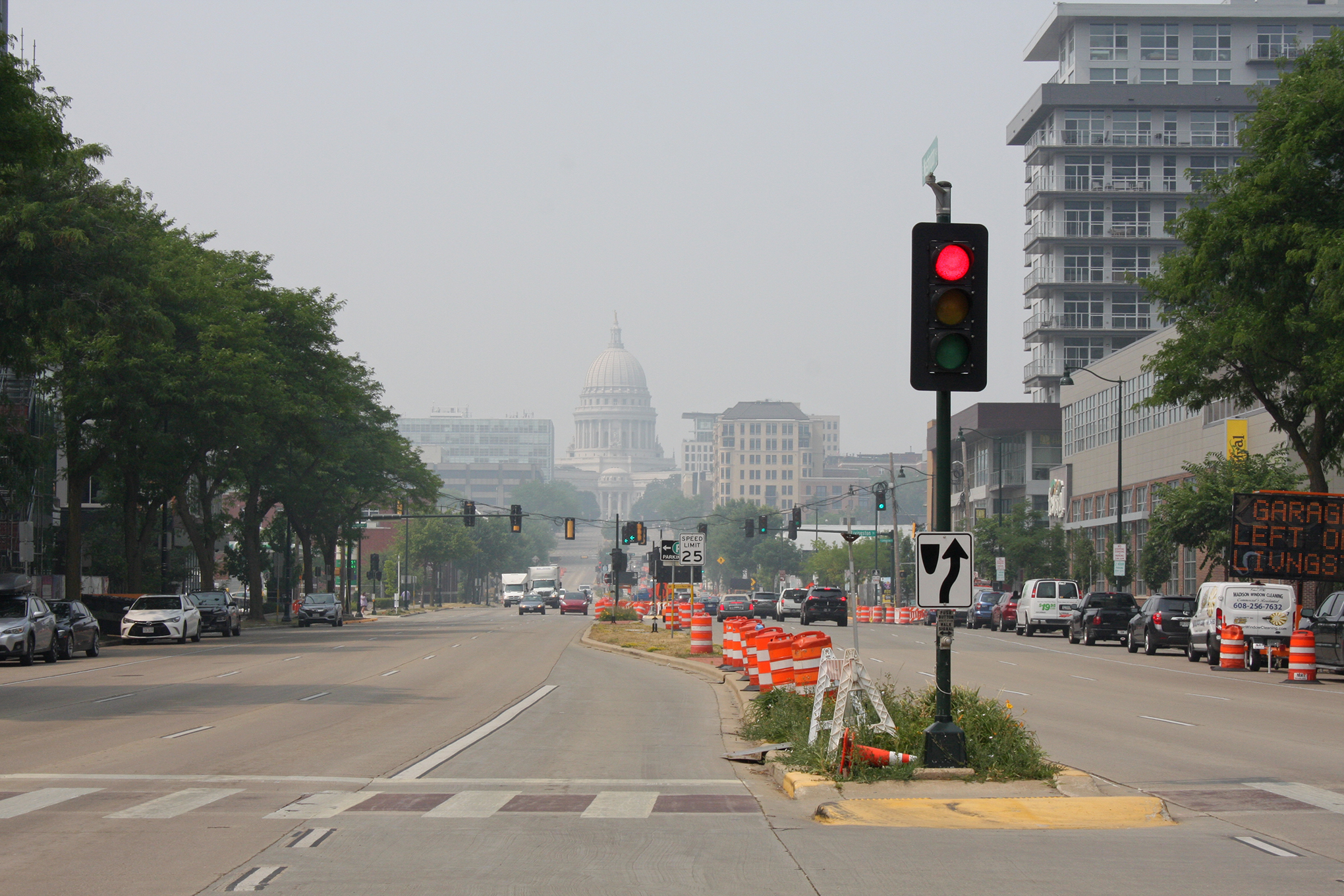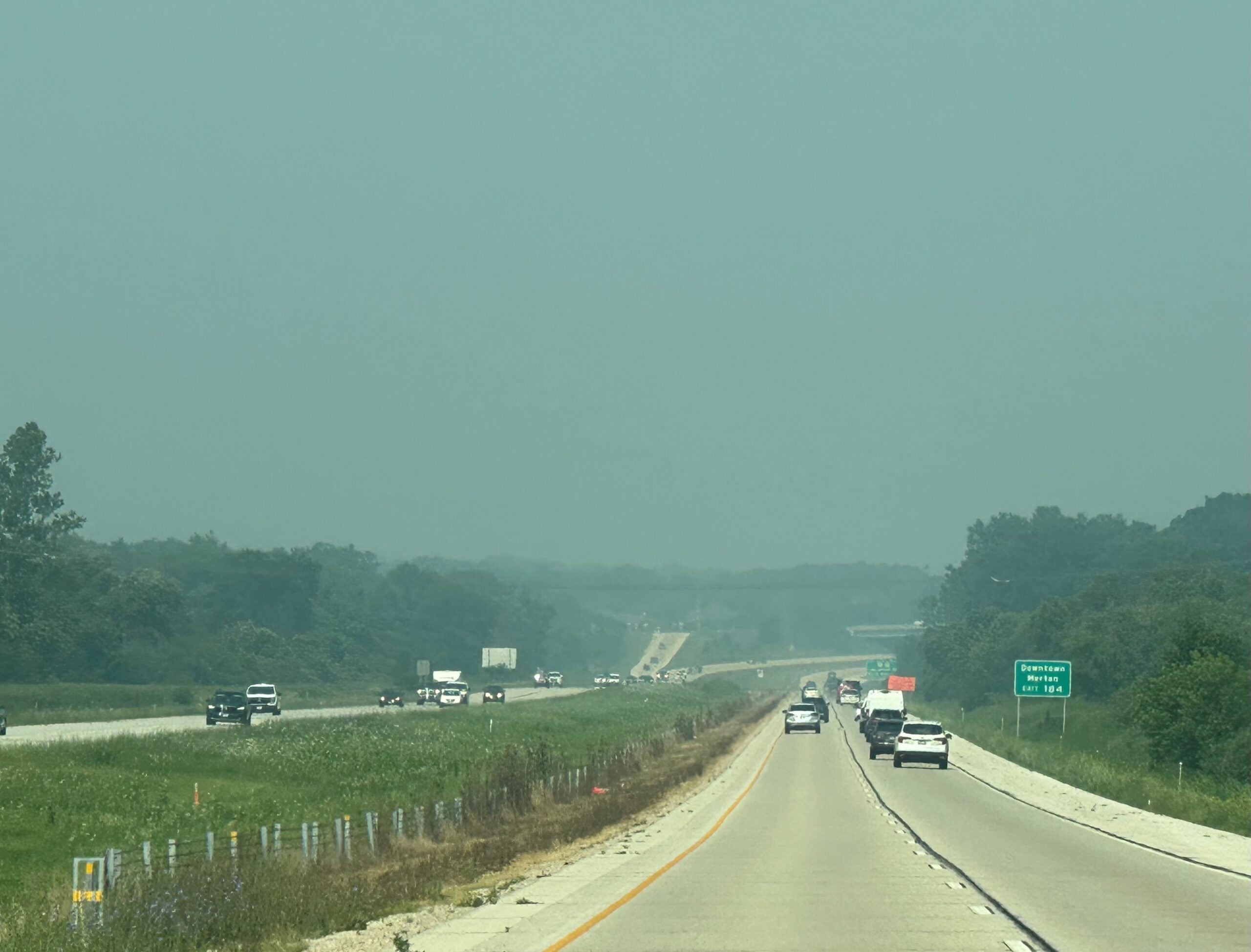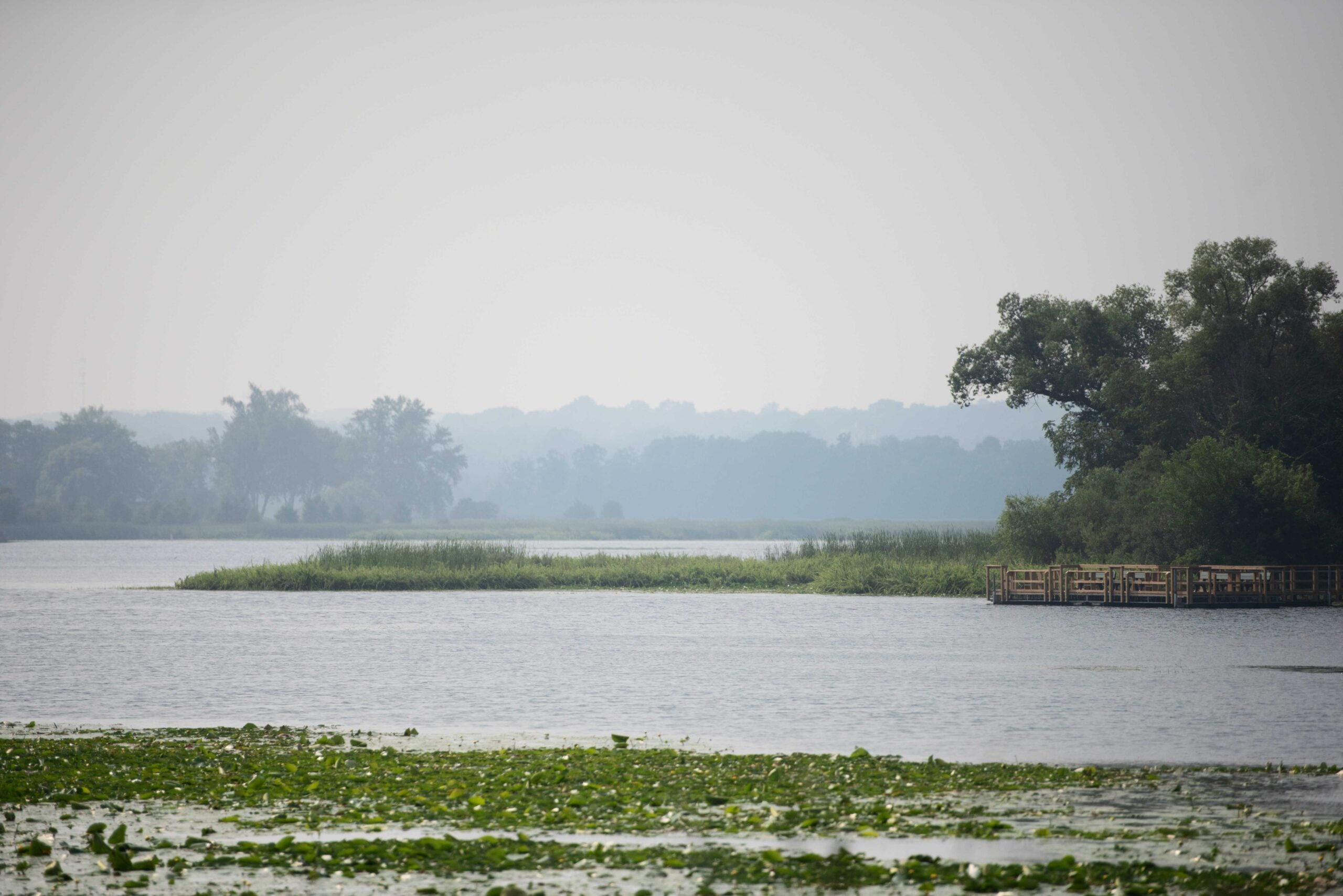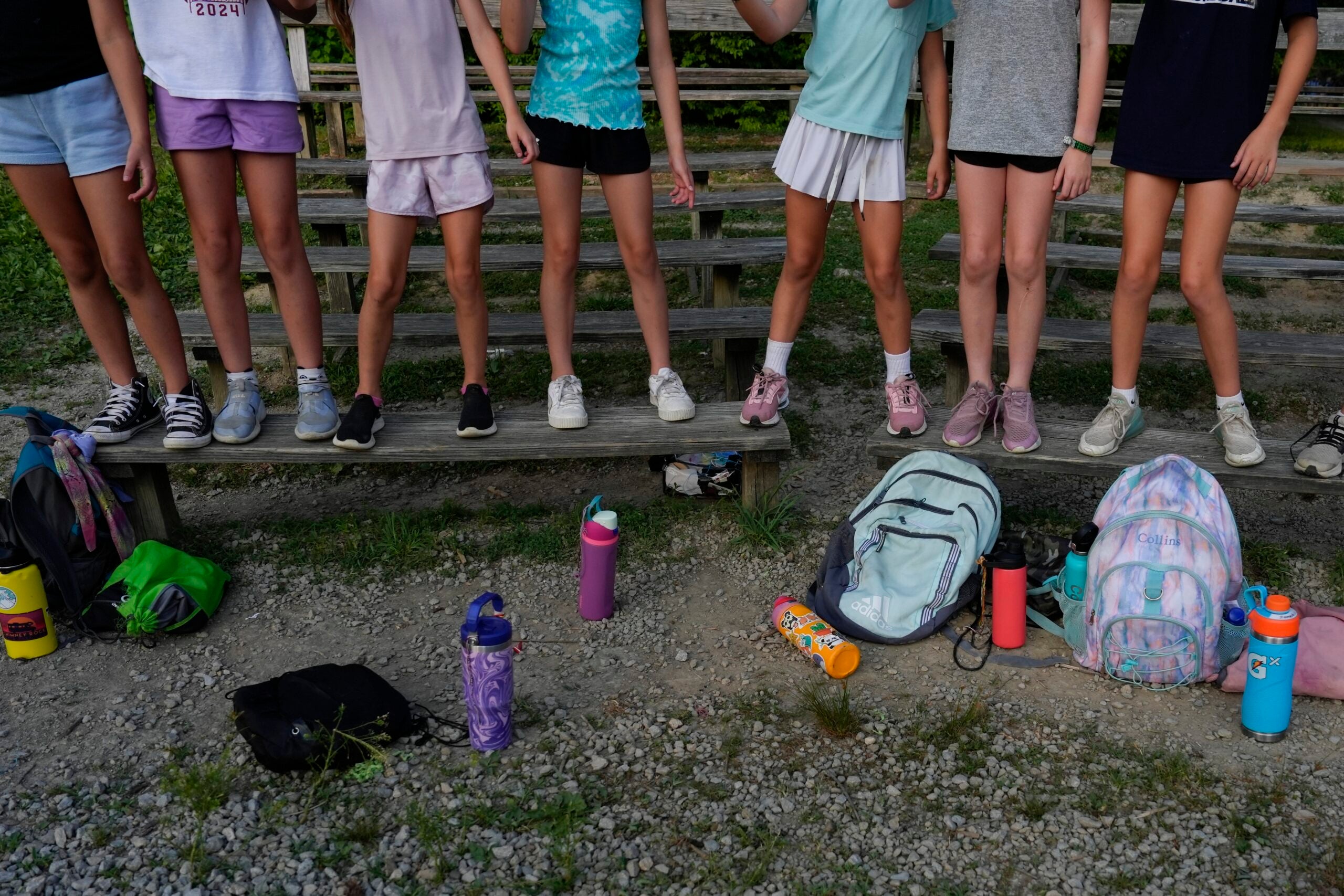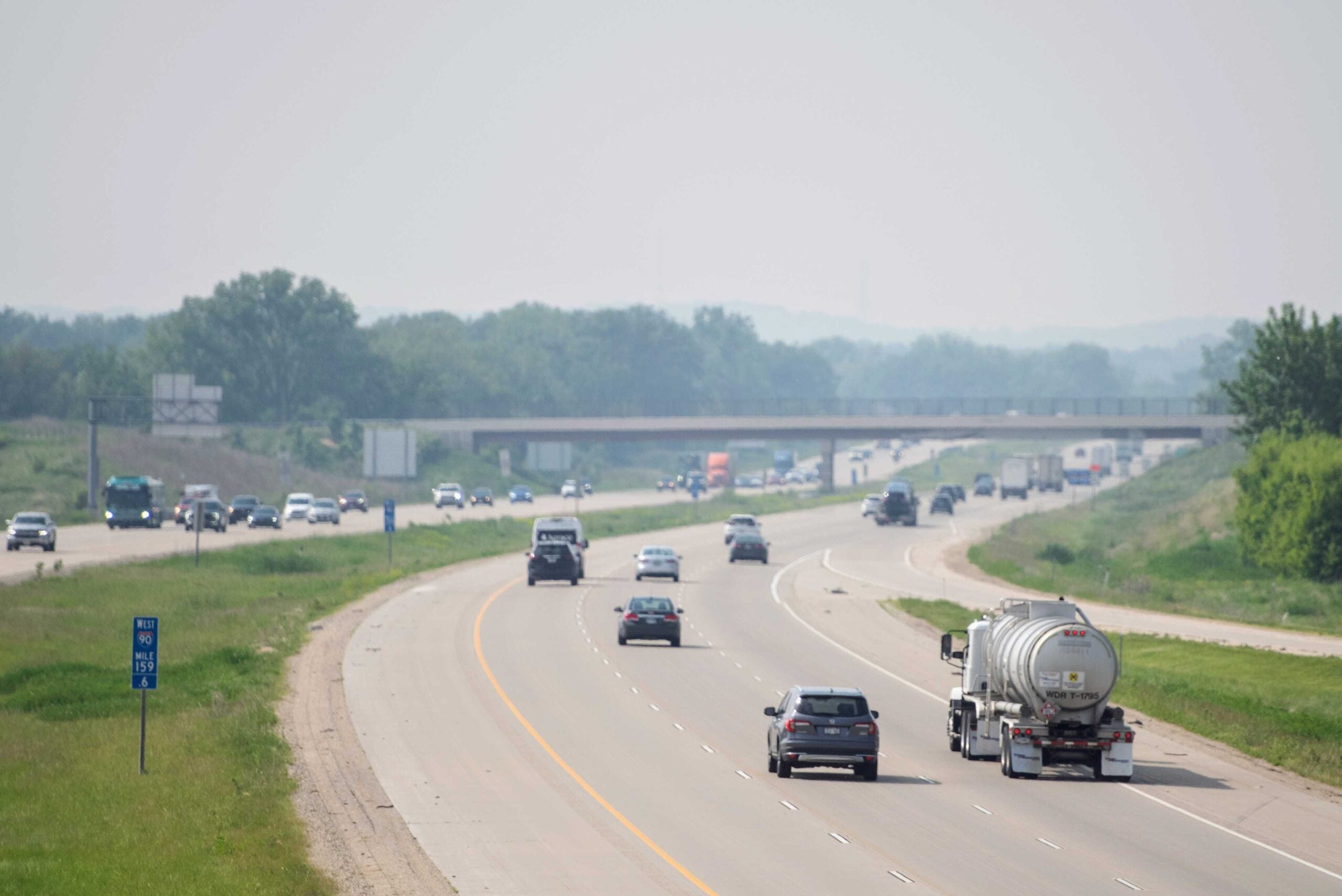A grayish smog hung over State Street in downtown Madison Wednesday, as shoppers, commuters and cyclists breathed in harmful smoke from Canadian wildfires.
Also breathing in the air was a bearded man, who had set up a blanket and several bags of his possessions under an awning.
The man, who is homeless and declined to share his name, said he experienced his fair share of wildfire smoke when he used to live in California, but that the haze was fairly new for Wisconsin.
News with a little more humanity
WPR’s “Wisconsin Today” newsletter keeps you connected to the state you love without feeling overwhelmed. No paywall. No agenda. No corporate filter.
“It’s bad,” he said. “Not as bad as in California, but it’s bad.”
Wisconsin is under an air advisory warning until noon Thursday. In Madison, pollution reached levels considered “very unhealthy” on Tuesday and Wednesday with an air quality index above 200.
Even healthy people are noticing short-term effects like coughs, headaches, stinging eyes and sore throats. But some Wisconsinites are at higher risk than others, including people experiencing homelessness.
Research shows people who are homeless are more likely to have asthma or chronic obstructive lung disease. And they often suffer from intermittent access to health care, poor nutrition and high stress, said Dr. Denise Kohl, who provides medical services to people without housing through Street Medicine Milwaukee.
“It’s really another example of health disparities between the general population and the homeless,” she said. “They’re especially hard hit by public health hazards, and also they’re going to be longer-lasting in this population as well.”
Kohl also noted that people who are homeless are often closer to pollution even when air quality warnings aren’t in effect.
“Most people are sleeping or living under bridges or bus stops or busy streets where there’s already increased exposure from air pollution due to traffic,” she said.
Wildfire smoke includes tiny particles that can be inhaled, causing irritation and potentially worsening chronic heart and lung problems. Along with those with pre-existing conditions, older people and children are especially at risk. That’s partly because children have smaller airways, but also because children are less likely to communicate symptoms and may have asthma that’s still undiagnosed, said Dr. Eric Schauberger, a pediatric allergist and immunologist at UW Health.
While the air quality warning is in effect, experts advise Wisconsinites to stay inside when possible with windows and doors closed. If you have to spend an extended period of time outside, an N95 mask is encouraged.
But staying inside can be tough when you don’t have a permanent place to live, Madison’s Community Development Director Jim O’Keefe acknowledged.
“It’s more difficult for them to escape conditions, whether it’s air quality conditions or, or climate conditions,” he said.
Homeless shelters in Dane County have been operating under extreme weather protocol since Tuesday night. That means people won’t be turned away because of capacity limits or prior suspensions.
During the day, the Beacon Day Shelter is open, though O’Keefe also said many people experiencing homelessness use libraries, shopping malls or the state Capitol building as informal daytime shelter.
He said outreach workers with Madison-area agencies have been distributing masks this week. The city began giving out KN95 masks at libraries on Wednesday morning, according to a news release from the mayor’s office. Also on Wednesday, the Public Health Department of Madison and Dane County announced daytime locations, known as clean air respite centers, for people seeking to come inside.
But, in an interview Tuesday afternoon, Zon Moua of Freedom, Inc. said the response from city and county officials to the air quality emergency was too little too late.
“Even yesterday (Monday) there was little movement from elected officials and leaders around the air quality warning,” she said. “We are really calling on the community, especially our community leaders, our elected officials, to actually put resources to open up buildings, to pay people, put them up in hotels, and in public buildings.”
Freedom, Inc., an organization that supports low-income communities of color in Greater Madison, released a call to action Tuesday. The demands included opening more government buildings to shelter people without housing and issuing a stay-at-home public health order to encourage people to stay inside. Moua said during the air quality advisory, Freedom, Inc. has been making wellness checks on its members and distributing masks and air purifiers.
Earlier this week, an update from the Wisconsin Department of Natural Resources called this week’s smog “the worst air quality in more than a decade.” Much of south central Wisconsin remained in the “very unhealthy” pollution range as of Wednesday. Vast swaths of the rest of the state, including Milwaukee, Waukesha, Appleton, La Crosse, Eau Claire, Wausau and Rhinelander, reached “unhealthy” levels.
If you need emergency shelter, call 211 for assistance.
Wisconsin Public Radio, © Copyright 2025, Board of Regents of the University of Wisconsin System and Wisconsin Educational Communications Board.

